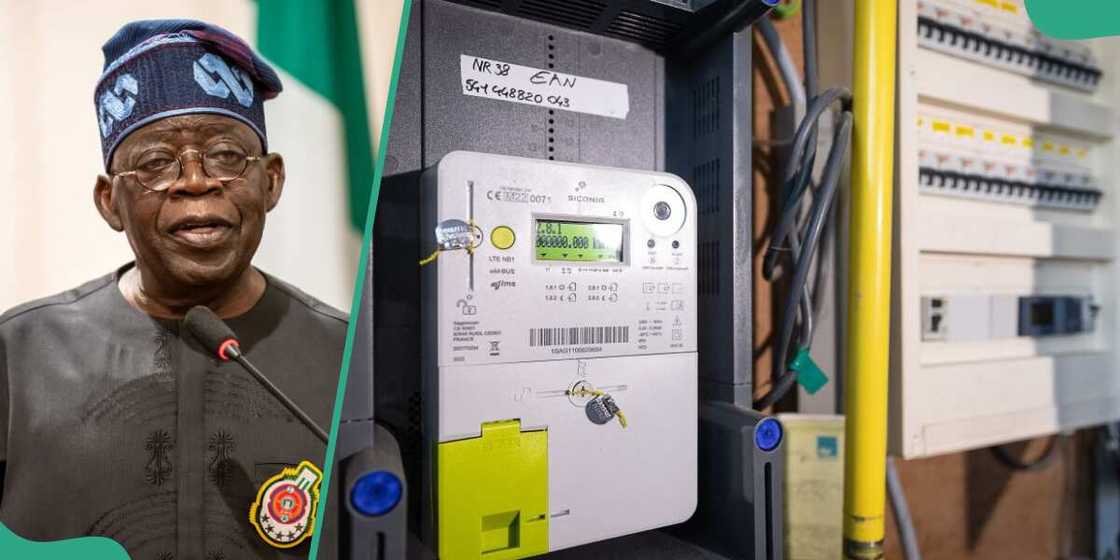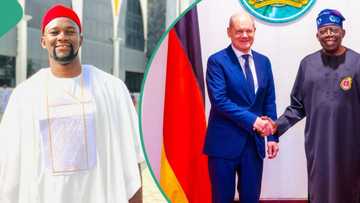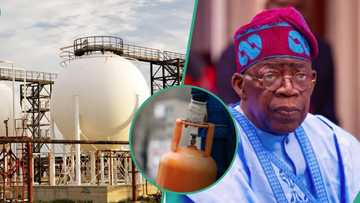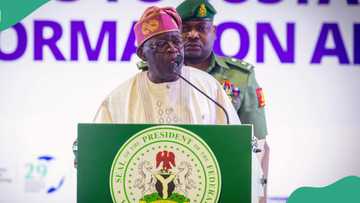Tinubu Proposes Electricity Tariff Review, Sets N2 Trillion Recapitalisation Target For DisCos
- President Bola Tinubu has asked electricity distribution companies to review tariffs to reflect current realities
- The president stated that the sector suffers from underinvestment and proposed N2 trillion recapitalisation for DisCos
- He said the sector operators should work to identify and eliminate the worst performers from the system
Pascal Oparada has over a decade of experience covering Tech, Energy, Stocks, Investments, and Economy.
President Bola Tinubu said Nigeria’s power industry has not met its objectives as the national grid only provides about 15% of Nigeria’s electricity demand.
The president spoke on Monday, October 30, 2023 during the Nigerian Electricity Supply Industry market participants and stakeholder roundtable.
At the roundtable, which focused on privatisation, Tinubu called for the recapitalisation of the electricity companies.

Source: Getty Images
PAY ATTENTION: Donate to Legit Charity on Patreon. Your support matters!

Read also
How Tinubu’s meeting with German Chancellor will boost Nigeria’s economy, APC chieftain speaks
Tinubu canvases for tariff review and new capital base for DisCos
Tinubu said initial analysis revealed that the DisCos were under-capitalised to N2 trillion, and noted that Nigeria’s power tariffs should be recalculated.
The special adviser on energy and infrastructure, Sadiq Wanka, represented the president at the event.
According to Tinubu, the objectives of the power sector have yet to be realised, 10 years after privatisation.
He added that over 90 million Nigerians have no access to electricity.
Tinubu said.
“The national grid only serves about 15 per cent of the country’s demand. This has left households and factories relying on expensive self-generation, which supplies 40 per cent of the country’s demand.”
He revealed that the total amount of electricity that can be supplied via the national grid has remained the same in the last 10 years, stating that the grid capacity has been boosted from 3,000MW to 4,000MW.
DisCos suffers from under-investment
Tinubu said that the purpose for the industry’s underperformance in the past 10 years was due to severe commercial, governance, and operational issues that had hampered the sector.
According to the President, for every kWh of electricity sent to the national grid, only 60% is paid for. He also revealed that the tariff needs to be more cost-reflective given the recent naira devaluation.
Tinubu said the electricity sector is suffering from severe underinvestment, especially in transmission and distribution, with many of the utilities failing to meet their set performance improvement target caused by technical and financial issues.
Punch reports that the President said the sector must work hard to address financial shortfalls, clear historical debts to the value chain stakeholders, and improve the investment attractiveness of the industry.
Eleven DisCos apply for tariff increase
He tasked the sector with a clear plan to rebase tariffs to recognise the value chain's actual costs and loss levels.
The President advocated for a plan to remove the worst performers from the system.
The Nigerian Electricity Regulatory Commission (NERC) revealed that 11 Nigerian electricity distribution companies have applied for the review of their electricity tariffs.
The NERC made this known in a notice described as an application for rate review.
Legit.ng earlier reported that Discos are meeting with NERC to demand a 40% hike approval, citing losses from the petrol prices that keep escalating and fluctuating exchange rates, among economic conditions.
Reports say that NERC stated that the application by the power firms was by the rules as contained in the Electricity Act 2023.
Electricity tariff may drop as FG considers fresh subsidy for GenCos amid price hike.
Legit.ng earlier reported plans by the federal government to introduce new subsidies for electricity generation companies (GenCos) to mitigate the impacts of the recent increase in gas prices imposed by producers.
NERC, in collaboration with key stakeholders in the industry, was said to be in the final stages of finalizing a new agreement for the sector.
Source: Legit.ng




